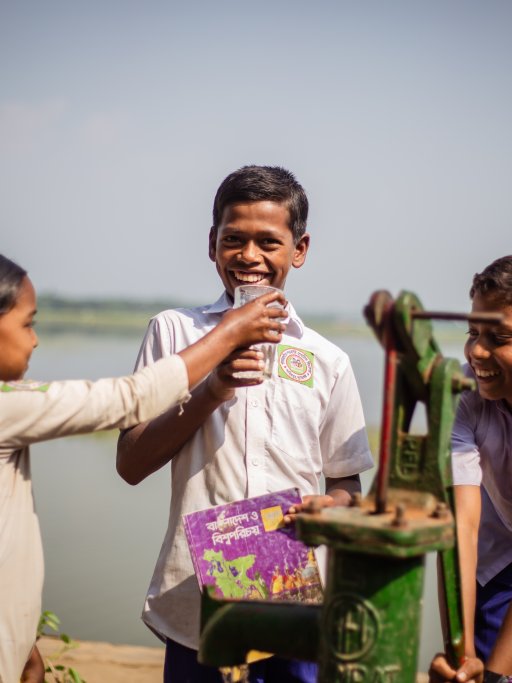In 2010, safe drinking water and sanitation were recognized as basic human rights, as they are indispensable to sustaining healthy livelihoods and crucial in upholding the dignity of all human beings.
Despite this recognition, the journey towards universal access to water and sanitation is far from over. The harsh reality remains: Today, one in four people still lack access to safely managed drinking water in their homes, and nearly half of the global population lacks access to safely managed sanitation facilities (WHO/UNICEF 2021).
Obligations, standards and principles
With the Human Right to Water and Sanitation (HRtWS) recognized, states have the obligation to work towards achieving universal access to water and sanitation for all, without discrimination, prioritizing those most in need. Fulfilling the HRtWS necessitates that these services are available, physically accessible, equitably affordable, safe, and culturally acceptable.
Utilities provide essential services and spearhead initiatives to close gaps in access, quality, and affordability. With a clear mandate, utilities strive to ensure that basic services meet international standards and are accessible to marginalized and vulnerable populations.
Water Operators' Partnerships (WOPs) are instrumental in driving progress towards realizing the Human Rights to Water & Sanitation. These partnerships facilitate the exchange of knowledge and capacity building among utilities, promoting innovation and enhancing operational efficiency. By enabling utilities to learn from each other's experiences, adopt best practices, and improve service delivery, WOPs play a pivotal role in establishing resilient and sustainable water and sanitation systems.
Missed the Live Webinar? Watch the Recording Now!
GWOPA brought together experts to explore the vital role of water and sanitation utilities in realizing the human rights to water and sanitation.
📌 Key Highlights:
- Understanding the human rights to water and sanitation
- Engaging utilities in advancing human rights principles
- Case studies:
- Revolving fund for social connections in Ghana
- Dutch utilities’ strategies for managing disconnections during economic challenges
- Community collaboration in low-income areas of Dhaka, Bangladesh
GWOPA is supporting operators in realizing the Human Rights to Water and Sanitation
Water and sanitation utilities are essential in providing safe, accessible, and affordable water and sanitation services to communities. They work tirelessly to ensure that basic services meet international standards and are available to marginalized and vulnerable populations.
WOPs facilitate knowledge exchange and capacity building among utilities, fostering innovation and improving operational efficiency. These partnerships enable utilities to learn from each other's experiences, adopt best practices, and enhance service delivery.
Utilities and WOPs engage communities in decision-making processes, empowering them to actively participate in the management and governance of water and sanitation services. This involvement ensures services are tailored to meet local needs and preferences.
Through collaborative efforts, utilities and WOPs support and strengthen utilities in their work towards building resilient and sustainable water and sanitation systems.
The Human Rights to Water and Sanitation
On 28 July 2010, the United Nations General Assembly adopted Resolution 64/292, recognizing the human right to water and sanitation. With this resolution the UN General Assembly and the Human Rights Council as part of binding international law.
A revised UN resolution in 2015 highlighted that the right to water and the right to sanitation were two rights, separate but equal. The appointment of a Special Rapporteur on the HRWS and the inclusion of water and sanitation in the Sustainable Development Goals (SDGs) with the dedicated Goal 6 , underline their importance on a global scale. Despite progress, challenges remain in ensuring universal access to these essential services.
The journey towards the full realization of the human rights to water and sanitation is ongoing, requiring sustained commitment, collaboration, and concerted efforts at all levels to ensure these rights for everyone, everywhere.
